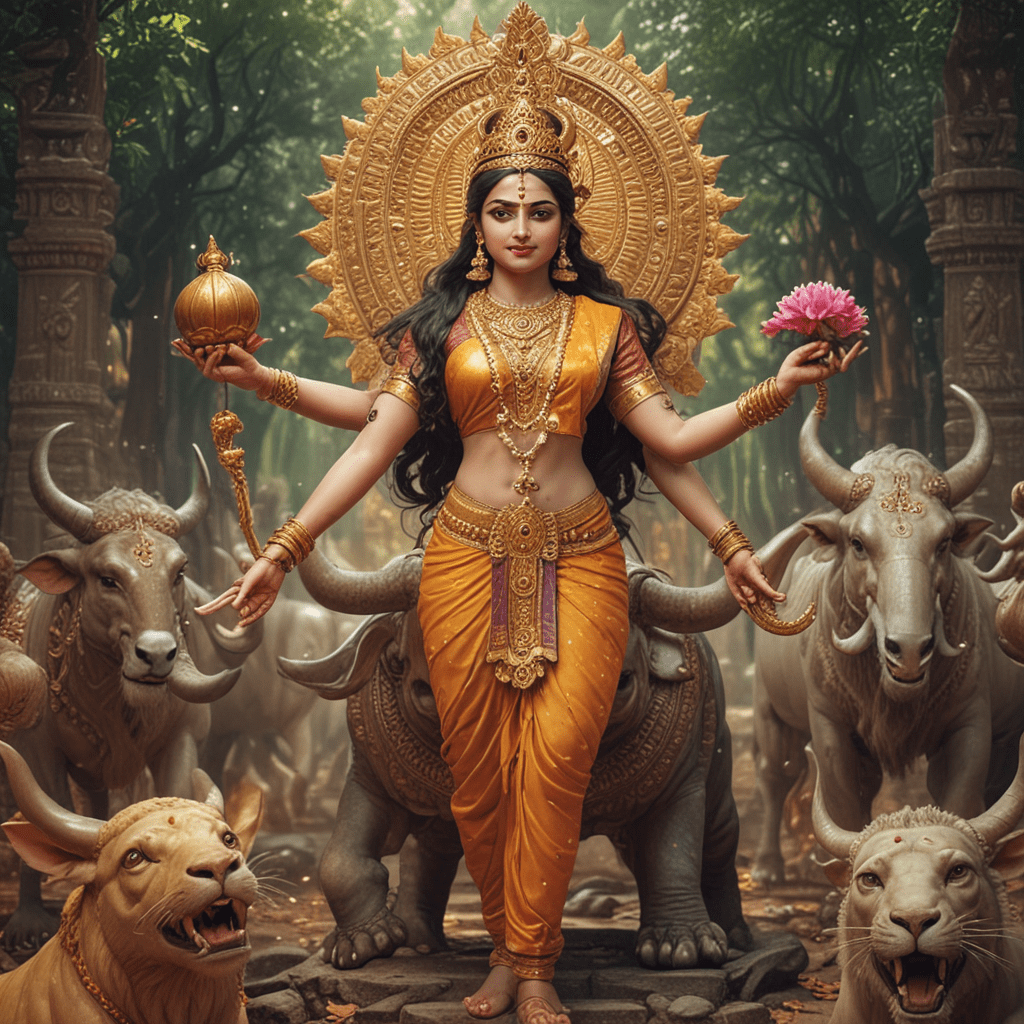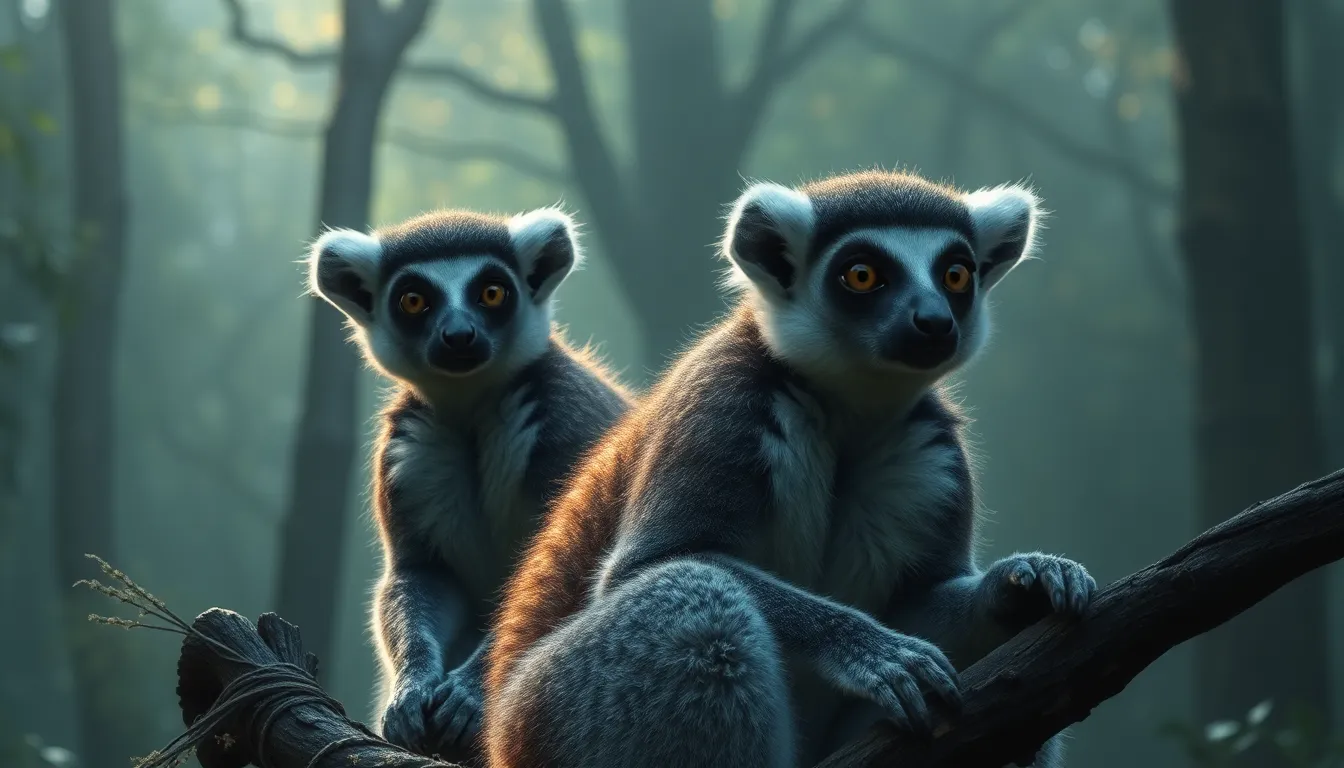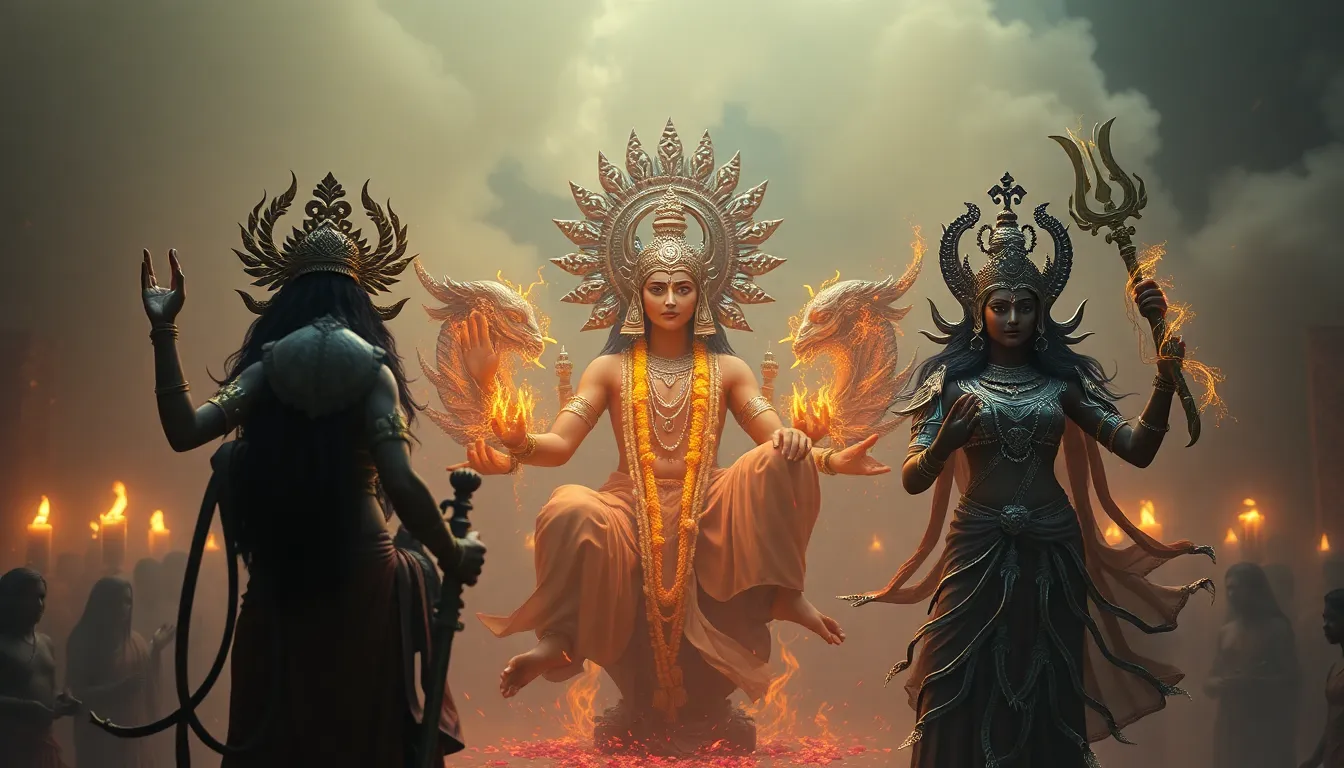Introduction to Hindu Mythology
Hindu mythology is a vast and complex tapestry of stories, legends, and beliefs that have been passed down through generations. These stories are not merely tales of entertainment; they are also deeply rooted in the religious beliefs and practices of the Hindu people. Hindu mythology provides an understanding of the origins of the universe, the nature of the divine, and the purpose of human life.
Major Mythical Festivals
Throughout the year, Hindus celebrate a number of major mythical festivals that commemorate important events in the stories of their gods and goddesses. These festivals are a time for prayer, devotion, and celebration, and they offer a glimpse into the rich and vibrant culture of Hinduism.
Diwali: Festival of Lights
Diwali, also known as Deepavali, is one of the most important festivals in the Hindu calendar. It is celebrated in the autumn, and it commemorates the victory of good over evil. The festival is marked by the lighting of lamps and candles, which symbolize the triumph of light over darkness. Diwali is also a time for family gatherings, feasting, and fireworks.
Holi: Festival of Colors
Holi is a spring festival that celebrates the arrival of the new season. It is also known as the "festival of colors" because people throw colored powder and water at each other. Holi is a time for joy and revelry, and it is a way to celebrate the coming of spring and
Ganesh Chaturthi: Birthday of Lord Ganesha
Ganesh Chaturthi is a Hindu festival that commemorates the birth of Lord Ganesha, the elephant-headed god of wisdom and prosperity. The festival is celebrated in the month of August or September, and it is marked by the installation of clay idols of Lord Ganesha in homes and temples. Devotees offer prayers, flowers, and sweets to the idol, and they also participate in traditional dances and music. Ganesh Chaturthi is a time for joy and celebration, and it is a way to honor Lord Ganesha and to seek his blessings.
Navratri: Festival of the Divine Feminine
Navratri is a Hindu festival that celebrates the divine feminine. The festival lasts for nine nights and ten days, and it is celebrated in the autumn and spring. During Navratri, devotees worship the nine forms of Devi, the goddess of power and creativity. The festival is marked by fasting, prayer, and meditation, and it is a time to reflect on the power of the divine feminine.
Dussehra: Victory of Good over Evil
Dussehra is a Hindu festival that celebrates the victory of good over evil. The festival is celebrated in the autumn, and it commemorates the victory of Lord Rama over the demon king Ravana. Dussehra is marked by the burning of effigies of Ravana, and it is a time to celebrate the triumph of good over evil.
Maha Shivaratri: Night of Lord Shiva
Maha Shivaratri is a Hindu festival that celebrates the night of Lord Shiva. The festival is celebrated in the month of February or March, and it is a time to honor Lord Shiva, the god of destruction and creation. Maha Shivaratri is marked by fasting, prayer, and meditation, and it is a time to reflect on the nature of the divine.
Janmashtami: Birth of Lord Krishna
Janmashtami is a Hindu festival that celebrates the birth of Lord Krishna. The festival is celebrated in the month of August or September, and it is marked by the birth of Lord Krishna in a prison cell. Janmashtami is a time for joy and celebration, and it is a way to honor Lord Krishna and to seek his blessings.
Ram Navami: Birth of Lord Rama
Ram Navami is a Hindu festival that celebrates the birth of Lord Rama. The festival is celebrated in the month of March or April, and it is marked by the birth of Lord Rama in the city of Ayodhya. Ram Navami is a time for joy and celebration, and it is a way to honor Lord Rama and to seek his blessings.
FAQs
Q: What is the significance of Hindu mythology?
A: Hindu mythology is a vast and complex tapestry of stories, legends, and beliefs that have been passed down through generations. These stories are not merely tales of entertainment; they are also deeply rooted in the religious beliefs and practices of the Hindu people. Hindu mythology provides an understanding of the origins of the universe, the nature of the divine, and the purpose of human life.
Q: What are the major mythical festivals in Hinduism?
A: Some of the major mythical festivals in Hinduism include Diwali, Holi, Ganesh Chaturthi, Navratri, Dussehra, Maha Shivaratri, Janmashtami, and Ram Navami. These festivals commemorate important events in the stories of the gods and goddesses, and they are a time for prayer, devotion, and celebration.
Q: How do Hindus celebrate these festivals?
A: Hindus celebrate these festivals in a variety of ways, depending on the festival and the region of India. Some common ways to celebrate include fasting, prayer, meditation, singing, dancing, and feasting.



